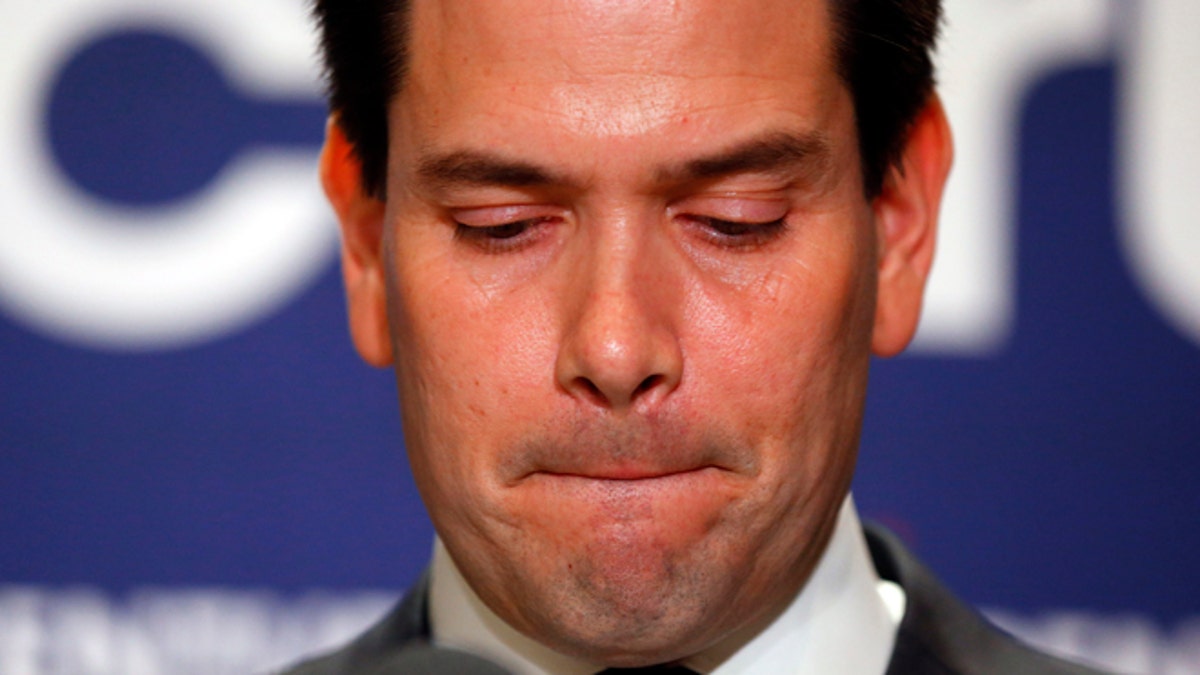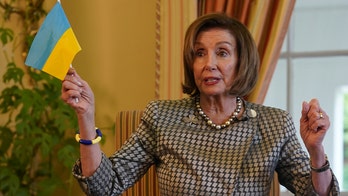
Republican presidential candidate Sen. Marco Rubio, R-Fla., speaks during a Republican primary night celebration rally at Florida International University in Miami, Fla., Tuesday, March 15, 2016. Rubio is ending his campaign for the Republican nomination for president after a humiliating loss in his home state of Florida. (AP Photo/Paul Sancya) (ap)
Marco Rubio staked everything on becoming the next president of the United States. Barred by the Florida statute from running for re-election as U.S. Senator, he knew a 2016 loss would mean a temporary farewell to public office.
“I will either be president of the United States,” the Republican candidate said on the campaign trail, intending to signal his unwillingness to be a vice presidential candidate, “or I will be a private citizen.”
After Tuesday night’s a defeat in the Florida primary to GOP front-runner Donald Trump, Rubio assuredly won’t be the nominee for 45th president of the U.S., but that doesn’t mean he won’t have a part to play in the naming of the Republican nominee.
A recent Morning Consult analysis found that Ted Cruz would likely gain the most from Rubio’s exit from the race.
Forty-seven percent of Rubio supporters said Cruz was their second choice for the nomination, followed by 27 percent picking John Kasich. Only 13 percent said they would support Trump, and 14 percent said someone else or didn't know.
Immediately after Rubio declared he was suspending his campaign on Tuesday night, social media speculation began about which was less inconceivable: that Rubio would endorse his fellow-Cuban-American senator, Ted Cruz, or jump onto the bandwagon of the GOP nominee with the clearest path to victory, Trump.
Conservative commentator Erick Erickson weighed in by tweeting, “Time for @BobbyJindal and other Rubio surrogates to move quickly to Cruz.”
He was far from the only one.
Both rivals antagonized Rubio during the campaign, with the Texas senator going after him on immigration — he kept front-and-center in the public mind Rubio’s participation in the so-called Gang of Eight immigration reform bill, which provided a path to citizenship for some people in the country illegally.
Trump, however, was Rubio’s principal tormentor, referring to him as a “lightweight” and “little Marco” and imitating his adventures with a water bottle during the GOP response to the 2013 State of the Union address.
But on Tuesday night, both Trump and Cruz, clearly hoping for an endorsement, had nothing but kind words for the Florida senator.
Cruz issued a statement reading, "Marco Rubio is a friend and a colleague who ran an optimistic campaign focused on the future of our party, conservative principles, and uplifting the American people. The Republican primary was stronger because of the ideas he brought forth. Marco's story embodies the promise of our great nation. I know he will continue to be a champion for limitless opportunity in America, and I wish Marco, Jeanette, and their four kids the very best."
Trump, in declaring victory (for the most part) in the Super Tuesday II primaries, used a similar tone. “I want to congratulate Marco Rubio on having run a really tough campaign. He’s tough, he’s smart and he’s got a great future.”
That sentiment doesn’t exactly jibe with what others are saying about Rubio, most notably Todd Purdum at Vanity Fair, who called him “a political has-been at 44.”
The likeliest path back to political relevance for the man Time magazine once called “The Republican Savior” would be a 2018 run for governor of Florida, according to Purdum, the Los Angeles Times and others.
And keep in mind that the senior senator from Florida, Bill Nelson, will be 76 when he is next up for re-election, also in 2018.
Tuesday night’s shellacking, however, with Trump getting 45.8 percent of the Florida GOP vote to Rubio’s 27.0 percent, could be fresh in people’s minds in a year or two, when those campaigns begin to ramp up.




